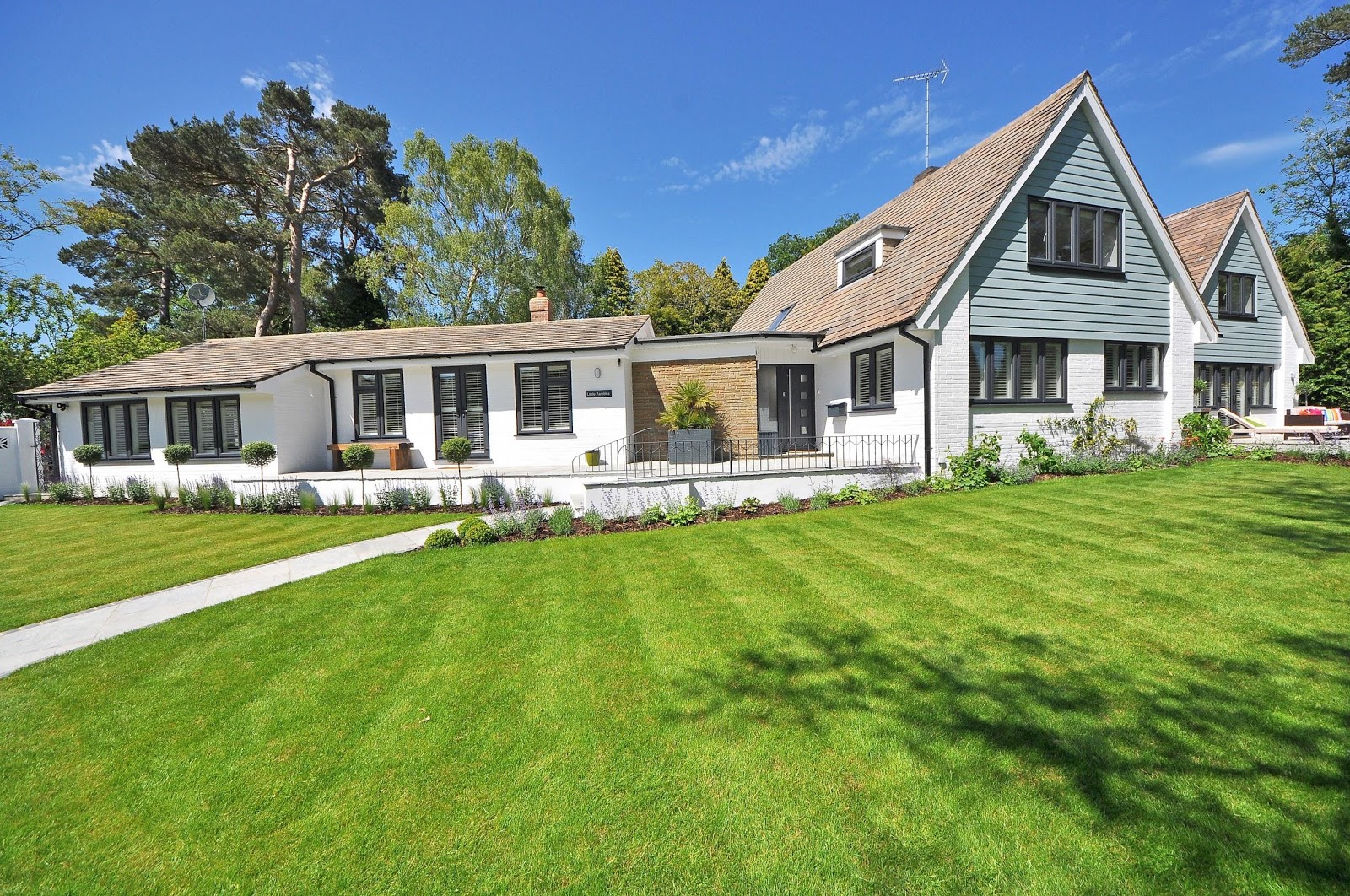Marshal and Lily have been married for 2 years now and are planning their family. But prior to that, they want to move out of their rented two-bedroom apartment in downtown Manhattan to a house in Westchester County, where they can find more space and better amenities.
After searching for a while, they zeroed down on a beautiful double-storeyed villa but it was out of their budget. Thinking about the future, they decide to go overboard and contacted a bank for a loan. On assessing their credit report and income statements, Mr. Gael, manager of the bank, suggested them to go for a mortgage loan and to process it further enquired about the amount they are willing to pay as a down payment.
Further, he discussed the period of amortization and the type of interest rate that would be best suited for Marshal and Lily.
If you’re in Marshal and Lily’s situation and need to understand the different types of mortgages, we at Mares Mortgage have put together a comprehensive guide for you.
Related: A Guide for Avoiding First-Time Home Buyer Mistakes

 In accounting terms, the income statement is considered as a review of a company’s financial performance over a specific time known as the accounting period. It generally focuses on the revenues and expenditures incurred in one accounting period.
For an individual, income statement simply means the sum total of his/her expenditures for various activities in a period subtracted from the sum total of his/her incomes from various sources in that period.
It is calculated on a monthly basis and the sum total of these statements is known as the annual income statement for an individual.
Find out about refinancing options with Mares Mortgage.
In accounting terms, the income statement is considered as a review of a company’s financial performance over a specific time known as the accounting period. It generally focuses on the revenues and expenditures incurred in one accounting period.
For an individual, income statement simply means the sum total of his/her expenditures for various activities in a period subtracted from the sum total of his/her incomes from various sources in that period.
It is calculated on a monthly basis and the sum total of these statements is known as the annual income statement for an individual.
Find out about refinancing options with Mares Mortgage.
 Every individual has different requirements and different financial conditions when taking a loan for a home that decided the mortgage terms for them. Financial institutions can tailor these terms to suit the individual requirement. Depending on the loaning condition, interest rates and amortization period mortgages are of following categories:
Every individual has different requirements and different financial conditions when taking a loan for a home that decided the mortgage terms for them. Financial institutions can tailor these terms to suit the individual requirement. Depending on the loaning condition, interest rates and amortization period mortgages are of following categories:
 An individual or an organization that acts as an intermediary between the borrower and the lender is known as the mortgage broker. When an individual is planning to buy a new home, brokers usually provide assistance in financing the same in a planned manner.
They are not associated with the bank and are different from the loaning officer.
An individual or an organization that acts as an intermediary between the borrower and the lender is known as the mortgage broker. When an individual is planning to buy a new home, brokers usually provide assistance in financing the same in a planned manner.
They are not associated with the bank and are different from the loaning officer.
Frequently asked questions about buying a home loan

What is a mortgage loan?
A mortgage, different from a student loan or personal loan, is a type of loan taken from a bank or other financial institution, and is used to make big purchases like a car or a home. This purchased property acts as collateral against which the loan is issued. If a person fails to pay back the loan on time, the bank has all the rights to take possession of the home.What is collateral?
A valuable item pledged as security to the bank or the financial institution that would be forfeited in case the loan isn’t paid on time. The value of the collateral must be the same or more than the loan amount. In case of a mortgage loan, the house or the property itself is guaranteed as collateral. The loan rates in such cases are substantially lower as compared to the ones with no security. In some cases, depending on the situation and personal choice, bank savings, investment accounts, and future paychecks can be used as collateral.What is down payment?
When an individual reaches out to a bank for requesting a credit, he or she is expected to pay some amount upfront. Unlike a student loan in which the bank provides the entire amount, in a mortgage, an individual is expected to make an initial payment. Mostly it is 20% of the requested loan but varies on the loan amount, credit-worthiness and also from bank to bank.What is a credit report?
In simpler terms, a credit report is a basic background check to understand an individual’s financial worthiness depending on their past records of financial transactions, payments of loans in the past, and financial habits to ascertain a pattern and deduce the likelihood of their loan repayment in future. Individuals who are maintaining a higher average score (ranges from 200 to 850) are in a better position to be accepted for a loan.What is an Income Statement?
 In accounting terms, the income statement is considered as a review of a company’s financial performance over a specific time known as the accounting period. It generally focuses on the revenues and expenditures incurred in one accounting period.
For an individual, income statement simply means the sum total of his/her expenditures for various activities in a period subtracted from the sum total of his/her incomes from various sources in that period.
It is calculated on a monthly basis and the sum total of these statements is known as the annual income statement for an individual.
Find out about refinancing options with Mares Mortgage.
In accounting terms, the income statement is considered as a review of a company’s financial performance over a specific time known as the accounting period. It generally focuses on the revenues and expenditures incurred in one accounting period.
For an individual, income statement simply means the sum total of his/her expenditures for various activities in a period subtracted from the sum total of his/her incomes from various sources in that period.
It is calculated on a monthly basis and the sum total of these statements is known as the annual income statement for an individual.
Find out about refinancing options with Mares Mortgage.
What is Amortization?
In business terms, it is the process of expanding the repayment of the loan at uniform intervals over a fixed period of time. Loan amortization is a process adopted to pay off the debts over the fixed interval.What is an Interest Rate?
It is the percentage part of the principal amount that is to be paid in addition to the monthly installment of the principal amount. This additional amount, in simple terms, is considered as the cost of borrowing money from the lender. It depends on the total amount borrowed and the time duration of repayment. Depending on the lender, this percentage remains fixed for all the years or can increase over the years. This is called compound interest rate. For this rate, the borrower is expected to pay interest on the sum total of principal amount and the interest collected previously till the entire loan is paid.What is Fixed-Rate?
When the borrower decides to keep the interest rate fixed for the entire period of loaning, it is known as a fixed-rate interest. As a result, the monthly payment remains the same or amortized irrespective of the time period. It proves beneficial in volatile markets where interest rate in the housing sector fluctuates frequently. However, in case very long-term loans, say 30 years, it might turn out to be expensive only if the interest rate drops.What is an Adjustable-Rate?
As the name suggests, mortgage loans in which the interest rates adjust according to pre-set loaning conditions are known are adjustable-rate interests or floating rate or variable rate. The changing rate is usually the sum of the market/bank rate and some additional percentage fixed by the financial institution. Initially, the rate remains constant for the first few years and changes monthly or annually in the subsequent years depending on the outstanding balance. It proves beneficial only when the market rate continues to drop and the sum total is less than the actual rate. It can be classified further depending on the terms of interest payment.Interest-only mortgage
An interest-only mortgage is designed to ease out the burden of payment in the initial phase of loaning. The first few payments are comparatively low or interest-only for a fixed time period and later increase to cover up the initial loss until the principal and interest amount is fully paid. Future payments are then set with fixed-rate to ease out the burden. It is a short period mortgage and cannot exceed more than 10 years. It is the most suitable mortgage type for first time home buyers.Balloon mortgage
It is a type of interest-only mortgage in which initial payments for a fixed time period is set to be lower, in some cases it is interest-only, followed by a lump-sum payment of principal and the interest amount. In most cases, it becomes a risky proposition and the borrower ends up paying more than they should have. It is best suited for individuals who are expecting a sudden raise or inflow of income in a short period of time. Related: Reasons to Refinance Your HomeDifferent Types of Mortgages
 Every individual has different requirements and different financial conditions when taking a loan for a home that decided the mortgage terms for them. Financial institutions can tailor these terms to suit the individual requirement. Depending on the loaning condition, interest rates and amortization period mortgages are of following categories:
Every individual has different requirements and different financial conditions when taking a loan for a home that decided the mortgage terms for them. Financial institutions can tailor these terms to suit the individual requirement. Depending on the loaning condition, interest rates and amortization period mortgages are of following categories:
1. Reverse mortgage
Unlike conventional mortgages, a reverse mortgage allows a borrower to receive funds in a lump sum amount or in fixed monthly payments against the home equity. It is a suitable loan for senior citizens, i.e. above 60 years, whose net value is associated with their home. Unlike a conventional loan, this doesn’t require any loan payment by the borrower. Instead, they receive payments against the housing property that becomes the property of the bank after the death of the individual. These loans can turn out to be costly if the individual lives long and the loan amount exceeds the market value of the home. As per the federal regulations, the loan payments are to be structured accordingly keeping in mind the duration of payment and avoid any kind of scam or forgery. However, there is a risk involved for the borrower in a situation when the spouse who also happens to be the owner of the house dies in which case the widowed spouse is left estranged without the house and the monthly installments.2. FHA Loans
Managed by the Department of Housing and Urban Development (HUD), Federal Housing Administration or FHA provides insurance to the lender in case the borrower defaults in the payment. It allows a down payment as low as 3.5% of the price. However, an individual is expected to pay for mortgage insurance that increases the monthly payments.3. VA Loans
The loan is strictly provided to the defense personnel or members of their family by the Department of Veteran Affairs (VA). Just like FHA, they are also backed by the federal government to recover the losses caused due to default in payment. The added advantage for this type of loan is that it allows the borrower to receive full purchasing amount, i.e. no down payment is required.4. USDA Loans
Rural borrowers who have a steady source of income but are unable to finance a home due to substandard pay are benefitted by the loan program offered by United States Department of Agriculture (USDA) which in turn is managed by Rural Housing Service (RHS).5. Conventional Loans
A conventional loan is a mortgage that is not guaranteed or insured by any government agency, including the Federal Housing Administration (FHA), the Farmers Home Administration (FmHA) and the Department of Veterans Affairs (VA). It is typically fixed in its terms and rate. Almost all of these loans are backed by Fannie Mae and Freddie Mac which are government-sponsored enterprises that help add liquidity to the mortgage markets.6. Jumbo Loans
A loan over the conventional loan limit ($765,600) would be considered a jumbo loan. Typically Jumbo loans have lower interest rates but have stricter guidelines such as lower Debt to Income ratios being required or high reserves.7. Non-QM (Qualified Mortgage)
Any loan that does not meet Dodd Frank guidelines for a qualified mortgage (not Conventional, Jumbo, FHA, VA, USDA). These loans allow for alternative forms of income (i.e. 12 months of bank statements, investor debt servicing loans, etc.). Non-QM loans can also allow for higher debt to income ratios, lower FICO scores, unwarrantable condos such as condotels or homeowner’s associations with litigation.How does a mortgage broker help?
 An individual or an organization that acts as an intermediary between the borrower and the lender is known as the mortgage broker. When an individual is planning to buy a new home, brokers usually provide assistance in financing the same in a planned manner.
They are not associated with the bank and are different from the loaning officer.
An individual or an organization that acts as an intermediary between the borrower and the lender is known as the mortgage broker. When an individual is planning to buy a new home, brokers usually provide assistance in financing the same in a planned manner.
They are not associated with the bank and are different from the loaning officer.
- They have a better understanding of the real estate market and can guide the borrower in deciding the type of mortgage and interest rate.
- They can also guide on the interest rates and other beneficial deals from different banks and financial institutes so the borrower can make an informed decision.
- These brokers usually partner with the real estate agents and are in regular touch with the loaning officer that gives them an upper hand while negotiating the bank terms.









